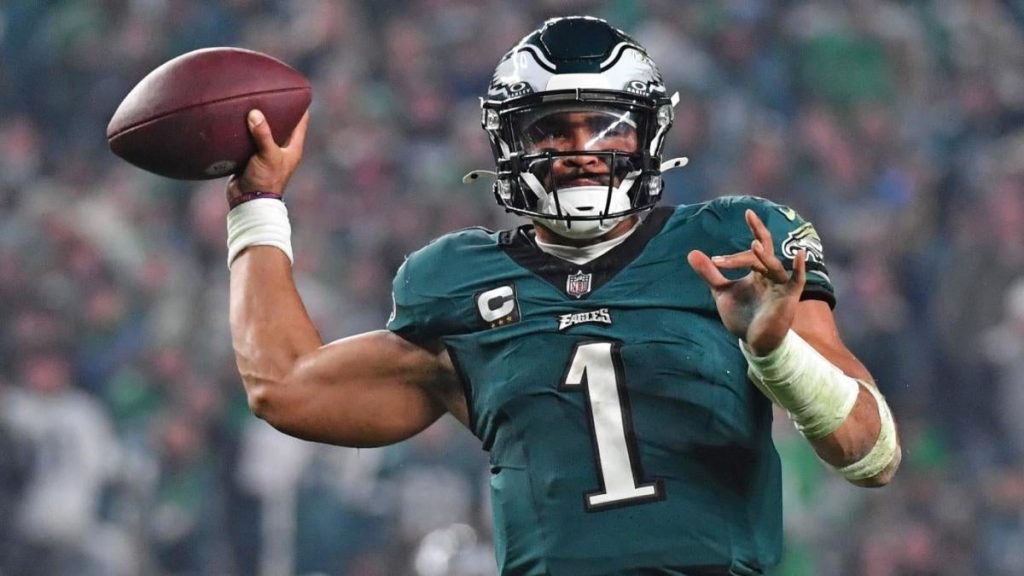The Philadelphia Eagles recently marked their Super Bowl victory with a visit to the White House. However, several prominent players, including quarterback Jalen Hurts, opted to skip the event due to scheduling conflicts. The absence of these key athletes raised eyebrows, particularly against the backdrop of the team’s previous reluctance to attend similar celebrations following their Super Bowl LII win. Overall, the event highlighted both the complexities of team dynamics and individual choices within professional sports.
| Article Subheadings |
|---|
| 1) Reasons for Not Attending |
| 2) Attendance at the Celebration |
| 3) Optional Attendance Policy |
| 4) Previous Super Bowl Celebrations |
| 5) Impact on Team Dynamics |
Reasons for Not Attending
The absence of several key players from the Philadelphia Eagles at their Super Bowl celebration at the White House has raised questions among fans and analysts alike. Quarterback Jalen Hurts was notably missing, with a representative citing a “scheduling conflict” as the reason for his absence. This statement aligns with comments made by Hurts in the weeks leading up to the event, where he indicated uncertainty about attending. Other players who missed the ceremony included wide receivers A.J. Brown and DeVonta Smith. The Eagles, having been aware since mid-March about the date of the celebration on April 28, could have adjusted their plans. Their decision not to attend prompted speculation about the underlying reasons.
Attendance at the Celebration
Despite the absence of some key players, a solid contingent from the Eagles did make it to the White House. Approximately 20 to 25 players were in attendance, including notable figures such as Saquon Barkley, Lane Johnson, and Jordan Mailata. The event featured several Eagles executives and coaching staff members as well, including owner Jeffrey Lurie, general manager Howie Roseman, and head coach Nick Sirianni. Their presence at the event illustrated a united front for the team, reinforcing their Super Bowl victory while allowing those who chose to attend to celebrate the accomplishment together.
Optional Attendance Policy
During a prior NFL league meeting, owner Jeffrey Lurie made it clear that attendance at the White House celebration was entirely optional for players. Lurie emphasized this point, stating, “Our culture is that these are optional things. If you want to enjoy this, come along and we’ll have a great time. And if you don’t, it is totally an optional thing.” This statement underscored a relaxed approach within the organization regarding such appearances, reflecting a culture where players have the liberty to make personal choices without fear of repercussions.
Previous Super Bowl Celebrations
The Eagles did not visit the White House following their Super Bowl LII victory in 2018 due to political tensions surrounding the event. At that time, several players publicly stated their intention to skip the visit, leading Donald Trump to rescind the team’s invitation. However, this year was marked by a clear acceptance and participation from many team members, showing a shift in attitude. Lurie remarked on this change, saying, “We just felt this is a time-honored tradition being invited by the White House.” His sentiment reflected a broader sense of unity among the players in celebrating their recent success.
Impact on Team Dynamics
The dynamic surrounding attendance at the White House, particularly among high-profile players, can influence the team both on and off the field. The decision by several players, like Hurts and Brown, not to attend could suggest individual priorities that might diverge from the collective goals of the team. Nevertheless, the overall team presence at the event reinforces a sense of camaraderie and collective achievement, while also allowing for personal choices that respect individual circumstances. The impact of these decisions stretches beyond the event itself and into the locker room, shaping how the team interacts, motivates itself, and prepares for future challenges.
| No. | Key Points |
|---|---|
| 1 | Jalen Hurts and several key players did not attend the White House celebration. |
| 2 | The Eagles owner confirmed attendance was optional and without repercussions. |
| 3 | A significant number of players and staff attended the event despite some absences. |
| 4 | The culture within the Eagles organization supports personal choice regarding such events. |
| 5 | Comparing this year’s celebration to the controversial visit following the 2018 Super Bowl win. |
Summary
The recent White House visit by the Philadelphia Eagles highlights the complexities of professional sports culture, emphasizing individual choice in team events. While significant players like Jalen Hurts chose to skip the celebration, the attendance of many others reinforced a spirit of unity within the organization. This noteworthy distinction between personal and team priorities may have implications not only for relationships within the team but also for how they approach future challenges as they continue to build on their recent Super Bowl success.
Frequently Asked Questions
Question: Why did several players miss the White House celebration?
Many key players, including Jalen Hurts, cited scheduling conflicts as the primary reason for their absence from the event.
Question: Was attendance to the event mandatory for Eagles players?
No, the Eagles owner emphasized that attendance at the White House celebration was entirely optional, allowing players to make individual choices.
Question: How does this year’s visit compare to the previous one after Super Bowl LII?
In contrast to the Super Bowl LII visit, which was marred by political tensions and absent players, this year’s event saw a more unified team presence, although significant absences still drew attention.
